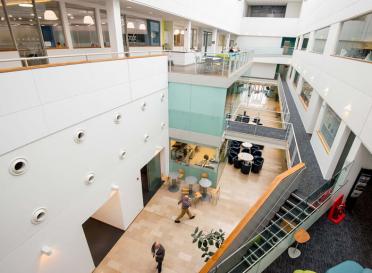
Life at Earlham Institute
We believe that our people are our greatest asset, and we want you to have the freedom to achieve your very best work here.
Crop pathogen surveillance and analysis methodologies must be developed to identify pathogen reservoirs and predict emergence. These developments are key to our ability to target fungicide treatment and reduce use.
Advances in sequencing technology make early detection of emergent pathogens in the air, both rapid and accurate. These advances in sequencing can also be used to identify host resistance, and wild crop relatives are a largely untapped resource for novel resistance gene discovery. While assessing pathogen diversity in the wild, there is an opportunity to develop methods to identify novel resistance directly in wild crop relatives.
In this PhD project, you will develop the bioinformatics skills required to analyse genetic diversity in the genomes of hundreds of pathogens associated with invasion potential and in hundreds of plant hosts associated with resistance.
You will select loci for host and pathogen amplicon panels and use these panels on four years of material collected from a network of spore samplers across East Anglia (field work). In addition to air spore sampling with the British Beet Research Organisation (BBRO), you will sample wild beets around the UK. Ability to drive, or willingness to learn may be required.
You will address a range of questions, from the utility of air amplicon sequencing to identify invader genotypes, to confirmation of resistance gene interactions.
This studentship bridges wet lab method development and bioinformatics and develop your experience of the bioinformatics and theoretical understanding of pathogen emergence.
We will only accept applications from candidates who satisfy the requirements for UK ‘Home’ fee status, therefore international candidates will not be eligible.
This project is awarded with a 4-year joint funded British Beet Research Organisation (BBRO), Chadacre Agricultural Trust, Perry Foundation, Felix Thornley Cobbold Agricultural Trust and The Morley Agricultural Foundation, PhD studentship.
This is open to Home Fee Status applicants only. Tuition fees at Home Rate only are covered, and a stipend will be provided for each year of the studentship (2025/6 rate is £20,780.00). Research training support funding is available.

We believe that our people are our greatest asset, and we want you to have the freedom to achieve your very best work here.

Norwich is a city of culture, with its rich history of art and writing, as well as a city of science - hosting some of the leading centres for life science research in the world.

The behaviours and communication skills we expect from candidates.